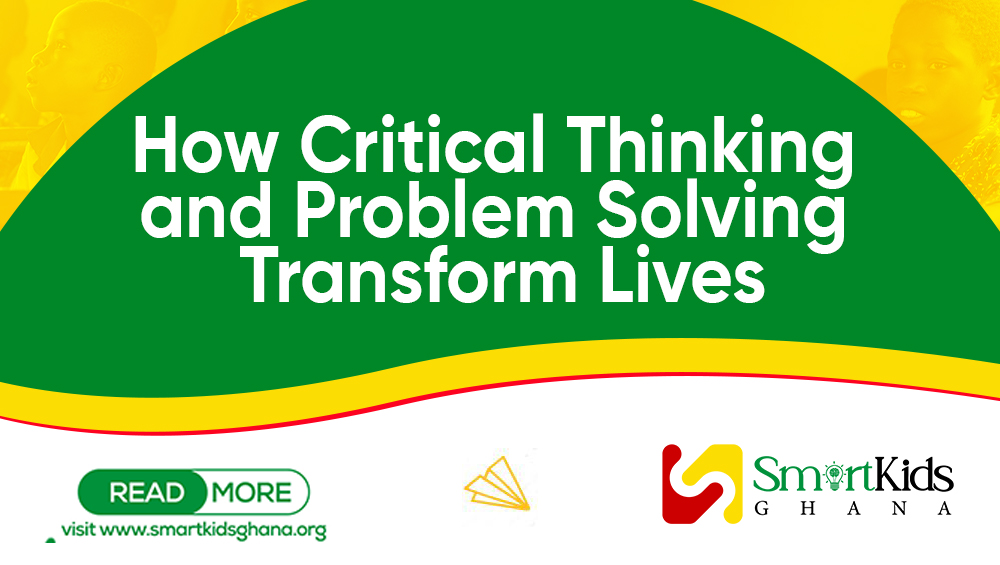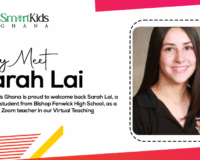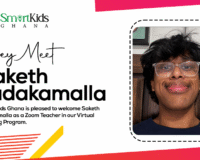In a world marked by rapid change and complex challenges, the ability to think critically and solve problems is more important than ever. These skills are not just academic exercises; they are essential tools that empower individuals to navigate life’s obstacles and seize opportunities. At SmartKids Ghana, we are dedicated to fostering these abilities in our students, understanding that they are key to unlocking their potential and transforming their lives.
The Power of Critical Thinking
Critical thinking is the ability to analyze information objectively and make reasoned judgments. It involves questioning assumptions, evaluating evidence, and considering multiple perspectives. This skill is crucial in a world where information is abundant and often conflicting.
Teaching critical thinking equips students with the tools they need to make informed decisions, solve problems creatively, and understand the world around them more deeply. It encourages them to move beyond rote memorization and engage in higher-order thinking, such as analysis, evaluation, and synthesis. This approach not only enhances academic performance but also prepares students for real-world challenges.
Problem Solving: A Path to Innovation
Problem solving is closely related to critical thinking but focuses on applying knowledge and skills to overcome specific challenges. It involves identifying problems, developing solutions, and implementing them effectively. In today’s rapidly evolving world, problem-solving skills are essential for innovation and success.
Through problem-solving activities, students learn to approach challenges systematically. They develop resilience by facing and overcoming obstacles, and they gain confidence in their ability to tackle difficult situations. These skills are valuable across all areas of life, from academic pursuits to personal and professional endeavors.
Transforming Lives Through Education
At SmartKids Ghana, our commitment to teaching critical thinking and problem-solving goes beyond the classroom. We believe that these skills are transformative and can significantly impact students’ lives. Here’s how:
1. Empowering Students to Think Independently
When students develop critical thinking skills, they become more independent learners. They are less reliant on rote memorization and more capable of understanding and applying concepts in various contexts. This independence boosts their confidence and prepares them for higher education and the workforce.
For example, students who engage in critical thinking are better equipped to analyze complex issues, make informed decisions, and advocate for themselves and others. These abilities are crucial for success in any field and contribute to lifelong learning and personal growth.
2. Encouraging Innovation and Creativity
Problem-solving activities encourage students to think creatively and explore new solutions. By working on real-world problems, students learn to approach challenges from different angles and develop innovative solutions. This creativity is a driving force behind technological advancements, business innovations, and societal progress.
At SmartKids Ghana, our programs include hands-on projects that stimulate creative thinking. Whether it’s designing a new app, building a robot, or developing a community project, students have the opportunity to apply their problem-solving skills in meaningful ways. This approach not only enhances their learning experience but also prepares them to contribute to a rapidly changing world.
3. Building Resilience and Adaptability
Facing and solving problems helps students build resilience and adaptability. They learn to persevere through challenges, view failures as learning opportunities, and adapt their strategies to achieve their goals. These qualities are essential for success in any area of life and contribute to a positive mindset and a strong work ethic.
Resilient students are better equipped to handle setbacks and remain motivated in the face of adversity. They develop a growth mindset, understanding that their abilities can be developed through effort and perseverance. This mindset fosters a lifelong commitment to learning and self-improvement.
4. Enhancing Collaboration and Communication
Critical thinking and problem-solving often involve collaboration and communication. Students learn to work effectively with others, share ideas, and consider diverse perspectives. These skills are essential for teamwork and leadership in both academic and professional settings.
Our programs at SmartKids Ghana encourage collaborative problem-solving, where students work in groups to tackle projects and share their findings. This approach helps them develop strong interpersonal skills, learn from their peers, and appreciate the value of teamwork in achieving common goals.
The Role of Educators in Fostering These Skills
Teachers play a crucial role in developing critical thinking and problem-solving skills. At SmartKids Ghana, we provide educators with the training and resources they need to incorporate these skills into their teaching. We emphasize the importance of creating a supportive learning environment where students feel encouraged to ask questions, explore ideas, and take risks.
By using interactive teaching methods, real-world problems, and inquiry-based learning, educators can inspire students to engage deeply with the material and develop their critical thinking and problem-solving abilities. Our goal is to empower teachers to be facilitators of learning, guiding students as they explore and discover.
Looking Forward: A Future Shaped by Skills
The skills of critical thinking and problem-solving are not just academic; they are life skills that shape the future of our students. At SmartKids Ghana, we are committed to unlocking the potential of every child through these transformative abilities. By equipping students with the tools they need to think critically and solve problems effectively, we are preparing them for a world of endless possibilities.
We believe that every student has the potential to achieve great things. Through our programs, we strive to nurture this potential and empower students to make a positive impact on their communities and beyond. Together, we can build a future where every child has the opportunity to thrive and succeed.






